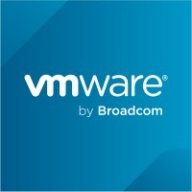

Spring Boot and IBM Open Liberty are competing products in the realm of Java-based application frameworks. IBM Open Liberty stands out with robust enterprise features, giving it an edge for those seeking enterprise-grade capabilities.
Features:Spring Boot is renowned for its simplicity, facilitating microservices development through auto-configuration, comprehensive spring ecosystem integrations, and an extensive plugin library. IBM Open Liberty offers support for MicroProfile and Jakarta EE, scalability, and high availability, essential for demanding enterprise applications.
Ease of Deployment and Customer Service:Spring Boot allows rapid deployment with its embedded server approach and is supported by an extensive, well-documented community. IBM Open Liberty provides flexible deployment options for complex environments and offers structured customer support models, beneficial for large-scale applications.
Pricing and ROI:Spring Boot is open-source with no initial costs, delivering substantial ROI through time and expense reductions. IBM Open Liberty requires investment but justifies these costs with robust features and scalability benefits, offering significant ROI for enterprise demands.
| Product | Market Share (%) |
|---|---|
| IBM Open Liberty | 4.3% |
| Red Hat JBoss Enterprise Application Platform (EAP) | 13.3% |
| Tomcat | 13.2% |
| Other | 69.2% |
| Product | Market Share (%) |
|---|---|
| Spring Boot | 34.4% |
| Jakarta EE | 17.6% |
| Apache Spark | 9.3% |
| Other | 38.7% |

| Company Size | Count |
|---|---|
| Small Business | 21 |
| Midsize Enterprise | 10 |
| Large Enterprise | 18 |
IBM Open Liberty is a highly adaptable and lightweight Java runtime, designed to cater to modern cloud-native applications. Its flexibility and commitment to open source makes it a valuable asset for developers seeking ease of deployment and scalability.
IBM Open Liberty stands out for its ease of integration into cloud environments and its emphasis on developer productivity. It permits quick iterations with minimal overhead, thanks in part to its support for MicroProfile and Jakarta EE. This allows for streamlined deployment processes, making contemporary software development more efficient.
What are the valuable features of IBM Open Liberty?IBM Open Liberty finds applications across multiple industries. In finance, it supports robust transactional systems. In telecommunications, it enhances service delivery with reliable microservices infrastructure. Health care benefits from its compliance capabilities, facilitating secure data management and faster application delivery.
Spring Boot is a tool that makes developing web applications and microservices with the Java Spring Framework faster and easier, with minimal configuration and setup. By using Spring Boot, you avoid all the manual writing of boilerplate code, annotations, and complex XML configurations. Spring Boot integrates easily with other Spring products and can connect with multiple databases.
How Spring Boot improves Spring Framework
Java Spring Framework is a popular, open-source framework for creating standalone applications that run on the Java Virtual Machine.
Although the Spring Framework is powerful, it still takes significant time and knowledge to configure, set up, and deploy Spring applications. Spring Boot is designed to get developers up and running as quickly as possible, with minimal configuration of Spring Framework with three important capabilities.
Reviews from Real Users
Spring Boot stands out among its competitors for a number of reasons. Two major ones are its flexible integration options and its autoconfiguration feature, which allows users to start developing applications in a minimal amount of time.
A system analyst and team lead at a tech services company writes, “Spring Boot has a very lightweight framework, and you can develop projects within a short time. It's open-source and customizable. It's easy to control, has a very interesting deployment policy, and a very interesting testing policy. It's sophisticated. For data analysis and data mining, you can use a custom API and integrate your application. That's an advanced feature. For data managing and other things, you can get that custom from a third-party API. That is also a free license.”
Randy M., A CEO at Modal Technologies Corporation, writes, “I have found the starter solutions valuable, as well as integration with other products. Spring Security facilitates the handling of standard security measures. The Spring Boot annotations make it easy to handle routing for microservices and to access request and response objects. Other annotations included with Spring Boot enable move away from XML configuration.”
We monitor all Application Server reviews to prevent fraudulent reviews and keep review quality high. We do not post reviews by company employees or direct competitors. We validate each review for authenticity via cross-reference with LinkedIn, and personal follow-up with the reviewer when necessary.